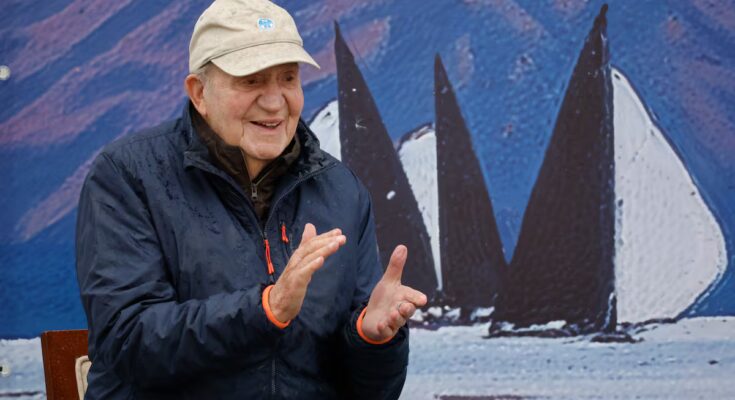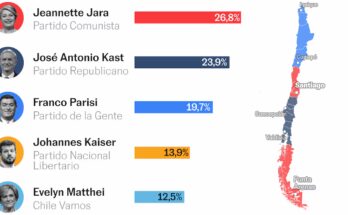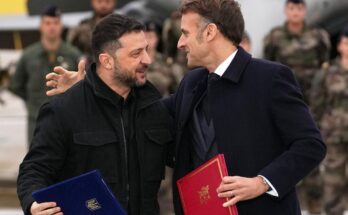This is the week in which we commemorate the 50th anniversary of the restoration of the Monarchy by decision of the dictator Francisco Franco in the figure of Juan Carlos I. But if the current king, Felipe VI, wants to forget anyone, it is the one who held power by force for 40 years after winning the Civil War. The father of the head of state dealt a severe blow to his son and the monarchical institution by trying to be the protagonist of this anniversary with offensive memories for King Felipe and Queen Letizia, but, above all, praising and showing all sorts of affectionate personal and political considerations of the last dictator in the history of Spain.
It was not the Government that decided five years ago that Juan Carlos I would cease to be a relevant figure after his abdication five years earlier, nor that he would leave the Zarzuela Palace. Nor that he was not the protagonist of the events that will take place at the Royal Palace next Friday, November 21st. Felipe VI made all the decisions to distance himself institutionally from his father, to defend the monarchical institution for himself and, in the future, for Princess Leonor.
Due to the usual information containment of the House of the King, very similar to that of the Moncloa regarding the affairs of the head of state, there were some interested people as to who forced the departure of the king emeritus from Zarzuela and not from Spain. He decided it. There are no legal restrictions on his return, as his alleged crimes are prescribed or masked by the inviolability of the kings. What he did was pay millions in sums for his outstanding accounts with the Treasury.
The discomfort, and even disbelief, that the emeritus’s departure from Spain caused for the conservative political sectors was mitigated by the attribution to the government presided by Pedro Sánchez of having forced it. All decisions, however, were made by King Philip VI, although not from his inauguration in Abu Dhabi. Yes, it was the king’s responsibility to deprive his father of his financial subsidy. Also his renunciation, and that of his daughters, of the inheritance that could come from the patrimony obtained through channels other than legality. All these actions were very well considered by the government. Even the latest ones these days.
The Executive did not have to push Felipe VI to make his father invisible on the occasion of the commemoration of the 50th anniversary of Juan Carlos’ swearing-in as King of Spain. The interlocutors consulted in the political and academic fields recognize the strangeness of the situation, but this is the story of Spain which began to build itself in 1975, after the death of the dictator. Juan Carlos was called Franco, but Philip VI always wanted to give his kingdom, in compliance with the functions established by the Constitution, modernity, public service and exemplary character. Juan Carlos’ praise of the dictator Franco, who did not allow anyone to speak badly of him in his presence, and attributed to him intentions of openness at the moment of his appointment as king, further raised the wall between Juan Carlos and Felipe VI.
In recent days reviews, such as the supplement published on Sunday by EL PAÍS, entitled Franco 50 years later, With many different voices and perspectives, in no case is the thesis that Franco intended to open the regime supported. Juan Carlos is given credit for having been well advised and for not having followed the path of those who wanted the continuity of the Franco regime without Franco. His ethical behavior and his way of making his fortune are what led his son to take the maximum distance from his father to defend the Monarchy.
Yes, it is clear that the president of the government Pedro Sánchez criticized Juan Carlos after these memoirs in which he praises Franco. “References to the dictator are particularly painful and worrying when thousands of Spaniards are still waiting to find their relatives in the graves where they were thrown.” This was Sánchez’s response to Podemos spokeswoman Ione Belarra during the government control session in Congress last Wednesday. Belarra called for a referendum to decide between monarchy and republic. The Podemos spokesperson called the emeritus a “criminal” and denied that he brought democracy, as he himself attributes in his memoirs not yet published in Spanish, but already widely distributed.
With or without laudable memories of Franco by the previous head of state, the celebration of these 50 years would not have been much different, but at least it would not have provided new arguments to snub the King, parliamentary sources underline. No parliamentary group to the left of the PSOE, nor the independentists, will participate next Friday in the event organized by the Congress in which the royal family will participate. The commemoration events will be held in the Royal Palace with all the powers of the state, as well as in the Congress itself. Queen Sofia will be present. The transition to democracy will be the subject of debate in Parliament, where he will refer to the absent King Juan Carlos, stopping however at his abdication on 18 June 2014, without delving further into his career.



